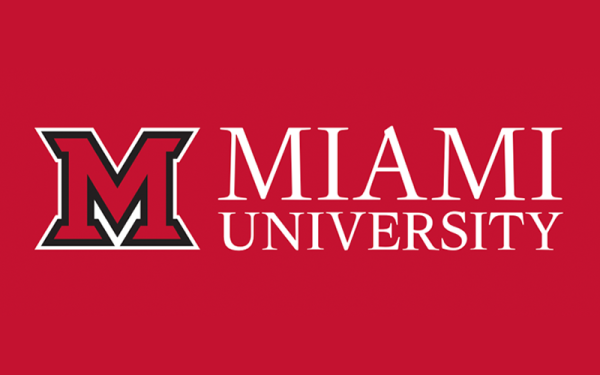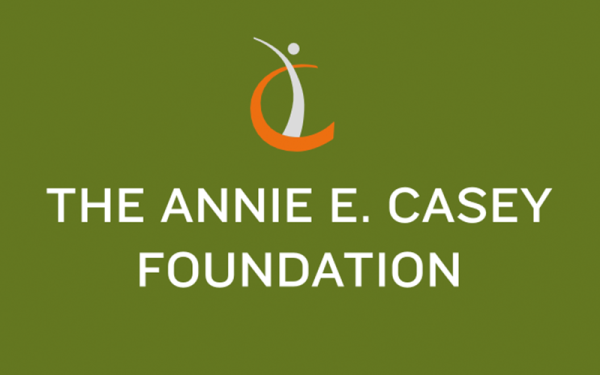4th
Ohio ranks 4th in number of children who have experienced parental incarceration
271,000
Children in Ohio who have experienced some form of parental incarceration
1/8
Ohio is one of only eight states with double-digit percentages of children who have had a parent incarcerated

About the Author
ESTHER QUAYE (SHE/HER)
Esther Quaye is an undergraduate fellow in the Global Arts and Humanities 2023-24 Society of Fellows cohort. She is pursuing a Bachelor of Science in Human Development and Family Science. Quaye is passionate about equity. She views childhood as one of the most valuable stages in our lifecycle, which presents a responsibility for all cultures to promote the well-being of this population. Quaye is currently a student research assistant on the Mary Jane Legacy Project: the first nationwide examination and archive capturing Black women's collegiate pathways.
“The communities where children reside can make or break a family’s stability.”
A Shared Sentence: The Devastating Toll of Parental Incarceration on Kids, Families and Communities
The Annie E. Casey Foundation
Project Overview
Ecological systems theory emphasizes a child's development within a network of relationships influenced by various environmental levels. Parental incarceration impacts micro (family), meso (community), exo (social services) and macro (societal) levels, shaping development and opportunities. This project, "Community Engagement as Crucial Support for Children of Incarcerated Parents and Their Families," aims to examine local resources for children affected by parental incarceration guided by existing academic research on their effectiveness.
There's no doubt that children of incarcerated parents navigate through several roadblocks. Research has shown a correlation to increased risk factors related to psychological problems and antisocial behavior, educational attainment and economic well-being. As such, they carry the burden of being neither acknowledged nor given a platform to be heard. They receive little personal support and do not benefit from the systemic societal mechanisms. Initially, I sought to explore the concept of parentification. Parentification is the effect of a family dynamic where children are required to assume adult roles and responsibilities, often due to parental inadequacy, absence or dysfunction. This can occur in families affected by various factors such as parental illness, substance abuse, divorce or incarceration. Yet, based on this definition, the cause of the phenomena is derived from inadequate resources to deal with the trauma itself. This understanding led me to reframe my research and implement a Human Development and Family Science (HDFS) model relevant in family stress theory, known as the double ABC-X model. Overall, the Double ABC-X model helps illuminate the complex interplay of factors contributing to parentification in families affected by parental incarceration, highlighting the importance of understanding family dynamics and providing appropriate support interventions. Furthermore, the model helps to explain the complex interplay between stressors, resources, perceptions and outcomes within families affected by parental incarceration, providing a framework for understanding the likelihood and potential consequences of parentification in this context.
Instead, I opted to approach the project from the basis of gaining an understanding of what resources best equip families to increase their chance of avoiding crises when faced with a major stressor such as parental incarceration. Research has shown that the most impactful resources for children of incarcerated parents encompass a holistic approach addressing their emotional, social and practical needs. These include access to mental health support and counseling to navigate feelings of stigma, shame and loss. Educational assistance, mentorship programs and extracurricular activities provide stability and opportunities for growth. Family reunification services — including visitation and communication support — foster connections and maintain bonds with incarcerated parents. Additionally, community-based programs offering financial assistance, housing support and legal guidance ensure basic needs are met, promoting resilience and positive development despite the challenges they face.
In their 2016 Policy Report, the Annie E. Casey Foundation proposed recommendations that state and local policymakers should adopt to help millions of children who struggle with emotional and financial instability as a result of having an incarcerated parent. The foundation’s three policy recommendations were:
- Ensure children are supported while parents are incarcerated and after they return.
- Connect parents who have returned to the community with pathways to employment.
- Strengthen communities, particularly those disproportionately affected by incarceration and reentry, to promote family stability and opportunity.
The Annie E. Casey Foundation's 2016 Policy Report laid the foundation for the framework of my research. The first of three recommendations led me to ask what local resources were available for these children in Columbus. During my preliminary background research, I discovered two organizations: Central Columbus Area Unlocking Futures and Big Brothers Big Sisters (BBBS) Amachi Program.
To better understand the outcomes associated with participation in these programs, if and what design process was implemented in the creation of the programs, and how they perceive the role in the lives of the population the work with to understand what future forms their resources with occupy. I will be conducting interviews (Qualitative research method-interviewing and observation) with program managers at both organizations using a basis of five questions that are the same for each interviewee and 5 that are specific to the organization based on prior background research conducted on the type and capacity (breadth and depth) of the programs offered.
This project will also include the input of a Licensed Marriage and Family Therapist (MFT). Overall, MFTs play a crucial role in advancing research on resources for children of incarcerated parents by leveraging their clinical expertise, conducting rigorous studies, and advocating for systemic improvements to better meet the needs of these vulnerable populations.
I envision a resource that is seamlessly integrated into the court system, achieved through collaboration with governmental agencies like local Departments of Job and Family Services. This resource would offer individuals the option to participate in a comprehensive program, along with access to information about other available resources from nonprofits. Additionally, it would provide advice from qualified child development specialists and references for further inquiries. Investing in further research and development in this area could lead to various solutions. Ultimately, the outcomes of this project will serve as a platform to present a multifaceted concept. Those deeply involved in advocating for children with incarcerated parents will take center stage in telling their stories.
- The Big Brothers Big Sisters (BBBS) Amachi Program, located at 1855 East Dublin-Granville Road, Columbus, Ohio 43229 on the city’s northside, has established a one-to-one mentoring program that matches children of incarcerated parents with volunteers from the community. A quote from the program website states “Our Amachi Program connects children with role models from all walks of life, but particularly those from local religious organizations. Houses of worship and their members can provide a safe, stable environment for children to develop into responsible young men and women.”
- Unlocking Futures, formally housed at 464 East Main Street, Suite E, Columbus, Ohio 43215 in the city’s downtown area, with the motto of “impacted Families! Helping families and we want to help you,” provides group mentoring, leadership programming, and prison transportation for youth ages five to seventeen whose parents are incarcerated. Group mentoring engages them in fun activities and provides them with a safe environment to discuss various topics. Their Generational Leadership program provides youth with tools to help develop their communication skill sets to help foster healthy relationships. All services are free, except the prison transportation. The minimal fee varies depending on the prison location. The company’s mission is to break the cycle of broken homes one family at a time by providing families with the resources needed to sustain the family unit during the incarceration of a parent.
- Annie E. Casey Foundation. (n.d.). Parental incarceration. Retrieved from https://www.aecf.org/topics/parental-incarceration
- National Institute of Justice. (n.d.). Hidden consequences: The impact of incarceration on dependent children. Retrieved from https://nij.ojp.gov/topics/articles/hidden-consequences-impact-incarceration-dependent-children
- National Center for Biotechnology Information. (n.d.). Demographics. Retrieved from https://www.kidsmates.org/demographics
- National Center for Biotechnology Information. (n.d.). The role of child and adolescent mental health services in addressing the needs of children with incarcerated parents. Retrieved from https://www.ncbi.nlm.nih.gov/pmc/articles/PMC10035849/
- Miami University, Center for the Study and Support of Children and Families of the Incarcerated. https://miamioh.edu/cas/centers-institutes/support-children-families-incarcerated/index.html
- Waters, A. S., Hoffman, C., & Mallett, C. A. (2020). Examining the effects of parental incarceration on child and adolescent health outcomes: A call to action. American Psychologist, 75(7), 954–965. https://doi.org/10.1037/amp0000687




